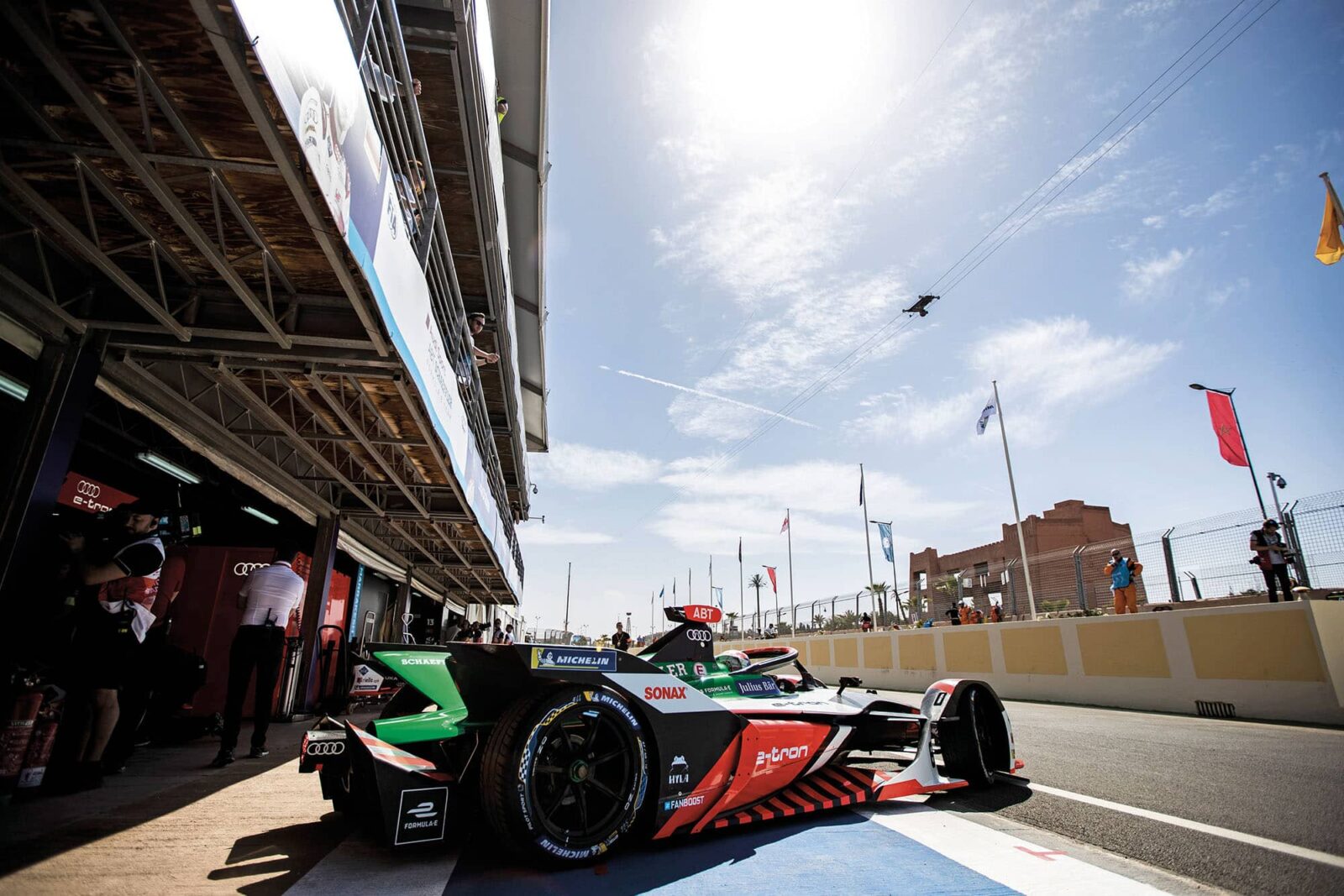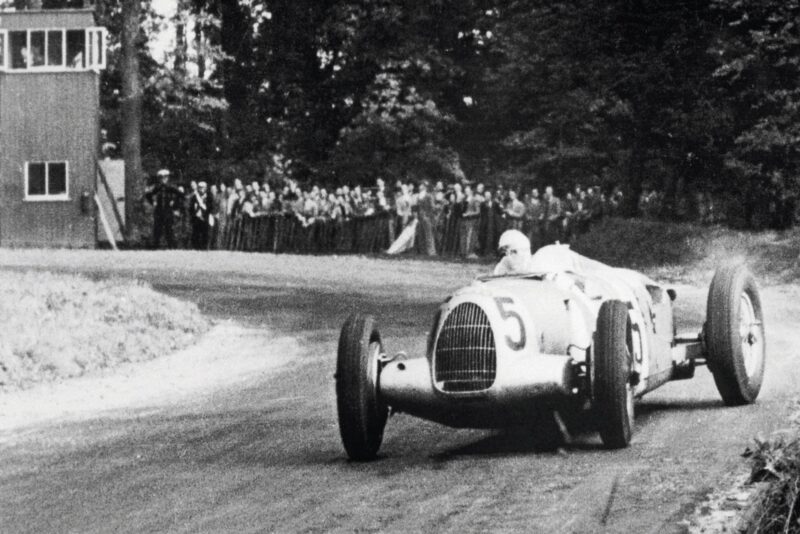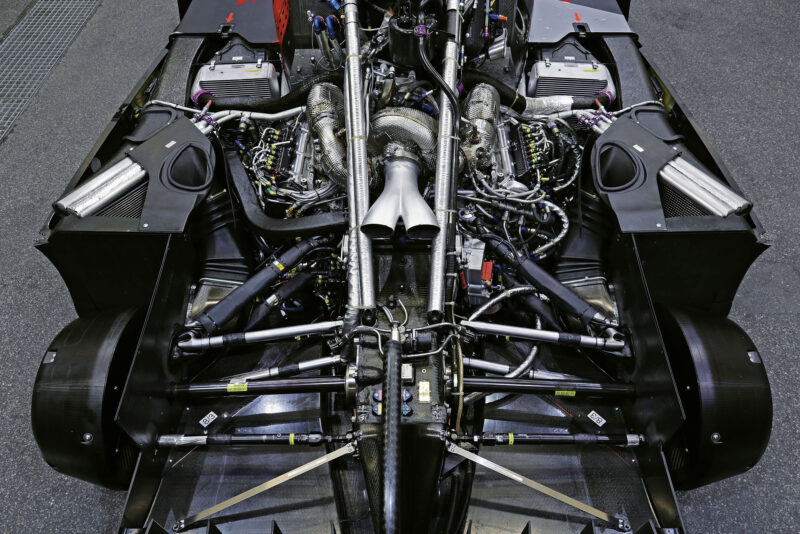
A Motor Sport "Special"
Nineteen hundred and forty-seven Will bring you one year nearer heaven— At least that's where we hope you'll go When you depart this vale of woe. But still, before you…

Audi came up short in Marrakesh, but McNish feels it’s close to a breakthrough
Marrakesh is a circuit everybody knows well because we’ve been there consistently since 2016-17, when the race joined as part of the COP Climate Conference. It’s also been the venue of two rookie tests, and so the overall mileage is relatively high for Formula E.
The other factor in our familiarity is that the track doesn’t change because it’s a permanent facility in FE terms. Therefore, I think pretty much everybody is quite optimised on it, which we saw throughout the weekend with a clear hierarchy developing throughout the teams. This year was different in that the race was an hour earlier. FP1 was therefore on Friday which, in some respects, goes against FE’s traditional one-day format.
I’ve got to say, though, from the mechanics’ point of view, it was a much less stressful day. They were in a better position to prepare than they had been in Mexico, where we had a chassis and battery change after Daniel Abt’s accident.
From our perspective, clearly, we’ve got a bit of work to do. Lucas di Grassi was third in group one qualifying, a tenth-and-a-half behind Alexander Sims’s BMW, and that was the difference between ultimately being eighth on the grid or taking 13th, as Lucas did.
Eventually, he was able to get up to seventh, which was probably the best we were really able to achieve in such a clean race. We had a straightforward meeting about it all after the race. We know we have to be stronger and our clear aim is to be back on the podium sooner rather than later. The way I see it is that the car had two podiums at the first weekend of the year in Saudi Arabia, and we’ve been close to good results since then.
It’s not happened for a few reasons, particularly qualifying which hasn’t been our strongest point in terms of that one-lap push. On the other side, the inherent speed’s there, we just need to be able to extract it more often.

Driving a ’37 Auto Union Type C opened McNish’s eyes to motor sport’s rapid development
I get asked quite often about the future of motoring and motor racing and how electric technology is going to be involved. I’d like to think I’m in quite a good position to inform on this one, due to the breadth of cars I have competed in and driven on the road, too.
I drove the Auto Union 1937 Type C once, and boy did that make an impression on me! It was a V16 with a beautiful engine, balance, everything else, and was stunning. It had no brakes, no steering response, no aero, no anything, but a beautiful brute of an engine. God did it go!
When I started driving professionally in 1987, it was a petrol-engined Formula Ford 1600, then Formula GM Lotus, Formula 3, F3000, and then I made it through to Formula 1 – all petrol-powered.
“I drove the Auto Union 1937 Type C, and boy did that make an impression!”
It was only in 2005 when Ulrich Baretzky came up with something different, the first diesel-engined LMP1 car, that alternatives started to be viable and successful. So, in a few words, we have gone from 1937 to 2006, and it’s all been petrol. Then from there, the next milestone was 2012 with the diesel-hybrid Audis, which had success at Le Mans and elsewhere. A few years on, we’re fully-electric with the FE and Audi e-tron programmes.
Honestly, I thought Baretzky was a bit mad, coming up with a concept that was completely different from everybody else. So, there is no way that I thought 12 years later, that first of all, I’d be retired, and secondly, I’d be running a team in an all-electric formula.This rate of development and change makes it very difficult to predict the future. But what I do know is that in competition, it pushes development forwards so much quicker.
I’ve got an Audi e-tron, and I was very interested to see what it would be like to drive, to live with, and to use. In terms of driving technology, no question, it’s very easy.

Audi changed the game in LMP1, before switching focus to Formula E
But the interesting thing is how it changes the dynamic in the way I think about driving. You know, with my racing roots, you could tell my characteristics as a driver. But when you’re driving, you’ve got so many pieces of information, and the car can also do so much for you as well. That automatically means your driving style is more efficient. One thing that’s quite clear is that, in whatever car, the majority of people driving on the roads are not efficient drivers. They are very inefficient.
Partly because they lug around golf clubs, or whatever, in the boot of the car all the time, without necessarily needing them. We know in racing just how hard we work to shave off a few grammes, never mind five kilogrammes. Then road drivers accelerate and brake as late as possible as if it’s the first corner of the Marrakesh E-Prix!
On that side of it, there are systems on the e-tron which automatically recuperate energy, instead of slowing you down by braking. You can switch these things off if need be, but it actually gives you a lot of guidance and feel to bring you into a different style of driving. Or you can just nail it, use all the torque, and put a smile on your face. The choice is there.
I’ve got two kids, and they look at cars in a very different way to me. They are not bothered about all the things I associated with driving when I went to racing circuits as a teenager, enjoying V12s screaming down the Hanger Straight and so on. For them, it’s just too bloody noisy and interfering with their social media or games console.
They are looking at mobility in general, and they’ll use cars and vehicles in a very different way to us. We’ve got to accept that, because they are the future.
Allan McNish is the Team Principal of Audi Sport ABT Schaeffler Formula E Team as well as being a three-time Le Mans winner.